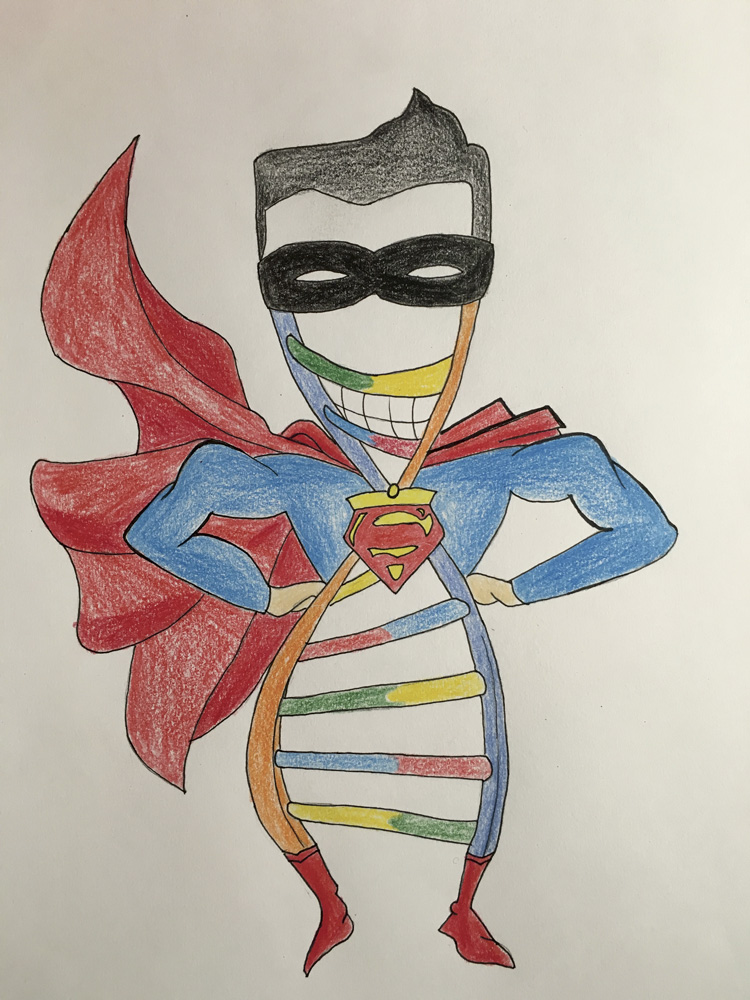
Miguel Rodriguez
Staff Writer
Researchers have found that 13 out of 600,000 individuals have “super DNA” that offers protection against various debilitating conditions, and hopes to use them to unlock the secrets to cures against diseases.
Often referred to as the blueprint of life, DNA determines everything that happens to an organism, from the color of one’s skin to determining if you’re a banana or human (humans share 50 percent of their genetic code with bananas). One rather useful function of DNA is determining what diseases you’re resistant to.
Some people are naturally more resilient than others when it comes to fighting off illness. This could be because their ancestors had a gene that made it easy for their immune systems to fight off the flu, and thus were able to pass these anti-flu genes to their offspring, or simply because there was a mutation, a conveniently positive coding error that granted resistance to the flu.
While most genes are shaped by natural selection, in which the best adapted individuals survive to pass on their successful genes, another form of evolution occurs with mutation.
Mutation is entirely random and doesn’t prefer a step in the “good” direction any more than it prefers a step in the “wrong” one. In a nutshell, you’re just as likely to have a mutation that grows you a tail as a mutation that darkens your arms. More often than not, these mutations are on a much smaller scale than the examples listed above, and a real life example of this would be in the few people found to have “super DNA.”
When looking for a cure to illness, scientists often look at those who are sick and try to treat them. An international team, however, thought it would be prudent to look at who wasn’t sick, and searched through an archive of 600,000 DNA samples in the process.
What they found was 13 individuals who were, in essence, immune to certain diseases. They had “super DNA” that effectively prevented the development of at least one of eight genetic diseases, including, “cystic fibrosis, Smith-Lemli-Opitz syndrome, familial dysautonomia, epidermolysis bullosa simplex, Pfeiffer syndrome, autoimmune polyendocrinopathy syndrome, acampomelic campomelic dysplasia and atelosteogenesis.”
Unfortunately, because of legal contracts, the scientists that discovered these “super genes” are not allowed to track down their people of origin, and thus want to start a new experiment, this time without such restrictions.
The discovery of these genes is immensely important, as it implies that we can start developing new therapies and treatments, possibly cures, to otherwise fatal afflictions.
Looking ahead, this also implies that it’s possible for people to start becoming immune to these illnesses, effectively eliminating the possibility of a lethal disease. Natural selection operates by passing on genes that allow for greater reproductive success. Because these “super genes” protect the host from dying from certain afflictions, they are likely to get passed on to the next generation.
Does this mean that humanity is entering its next stage of evolution? Evolution is defined as, “the change in the gene pool of a population from generation to generation by … mutation, natural selection and genetic drift.”
University of California, Santa Barbara professor Steve Gaulin offers his thoughts on this. He said, “Resistance is likely to be highly polygenic — shaped by genes at many different loci — and that, therefore, not much practical information will be gleaned from these studies.”
Traits are complicated and not always defined by a single gene. Some traits, like height, are determined by a number of genes, and it’s possible that disease resistance is also determined in this fashion.
Still, some people find this study to be exciting. “It definitely would have medical applications, and if it’s possible that they can use this knowledge to save other people’s lives that’d be great!” Vanessa Chou, first-year biology major, commented. “Even if it’s some random mutation it could be the key to making us all Superman.”
While humanity is still a while off from being immune to every disease in existence, the discovery of this “super DNA” is potentially a huge breakthrough for all humankind.










